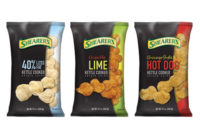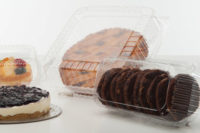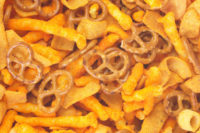On-the-go Americans are consuming more of their morning calories over several hours instead of in one sitting with a big plate of food. Morning munchies are instead being sated by a smaller meal, one of several in the day instead of three squares, which many believe is a healthier approach to eating.
What’s considered a snack or a meal today is a matter of perspective, but food companies are rolling out smaller bites that feed the growing appetite for morning snacks. General Mills, Quaker Oats and others are expanding their breakfast bar and yogurt lines. Last summer, Sara Lee’s Jimmy Dean launched mini breakfast sandwiches, and fast-food chains in recent years have added to their breakfast menus with morning snack items such as smoothies and fruit-and-walnut packs.
It’s breakfast in stages,” says Liz Sloan, president of Sloan Trends, a food industry consulting group. “They’ll eat something at home, then stop at Starbucks or a convenience store for coffee and maybe a little snack.”
More deconstructions of the breakfast meal are taking place as busy Americans eat more meals outside of the home due to time constraints and the convenience aspect. It’s easy to pack a few snacks for later than it is to sit down for a big meal.
Market research firm, The NPD Group, estimates that the number of times people snack in the mornings will leap 23% from 2008 to 2018. That’s compared with a 20- and 15% increase in afternoon and evening snacking, respectively.
But is marketing morning snacks easy? Actually, it can be trickier, because mornings are a time when people generally want to feel virtuous about their eating habits. Some food companies are claiming nutritional benefits of their packaged goodies that are less than 300 calories and have more fiber, whole grains or antioxidants. They’re hoping such snacks will help people stay energized or feel full longer.
But people can sometimes wind up consuming more calories when they switch to eating smaller meals throughout the day, according to David Levitsky, a professor of nutrition and psychology at Cornell University. “If you reduce everything, that’s fine. But that’s not what we do,” Levitsky says. “When you add in snacks, you’re usually just adding calories.”
Still, food companies are betting on consumers’ willingness to take the snacking habit into the morning hours. For example, Kraft is launching an advertising campaign for its MilkBite granola bars, which it says provide the same amount of calcium as a glass of milk.
Earlier this year, Quaker Oats began selling a soft-baked banana nut bar that it says combines “the taste of your favorite baked goods with healthy ingredients.” The bar has 140 calories, 5 g. of fiber and 6 g. of protein.
Source: www.washingtonpost.com
Those on the go snack in the morning
Looking for a reprint of this article?
From high-res PDFs to custom plaques, order your copy today!





